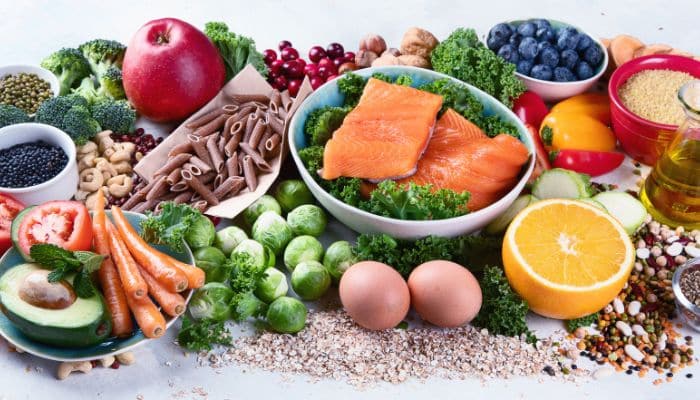Is Bruxism Caused by Dietary Habits?
Bruxism is the medical term for involuntary teeth grinding, gnashing and clenching. It’s a diagnosed medical and dental condition that, in most cases, doesn’t cause for alarm. While it affects people of all ages, it’s more prevalent in children due to misaligned teeth. Fortunately, they also often outgrow it.
Teeth grinding seldom leads to serious health concerns. Still, the pain you experience can lower your quality of life. Learn more about the factors that contribute to bruxism and treatment approaches care providers use.
Is Bruxism Caused by Stress?
Excessive stress ranks high on the list of factors leading to bruxism. It affects how your body functions, even in sleep. The brain works nonstop, so in an unconscious state, the body responds to stress by teeth grinding, clenching or chomping.
Psychological factors — such as sleep disorder, anxiety, anger tension and emotional issues also contribute to this condition. Other known causes are:
- Genetics
- Medication side effects, such as antidepressants
- Vitamin deficiency, particularly calcium, vitamin D or magnesium
- Mental health conditions, like dementia, Parkinson’s disease, epilepsy and attention-deficit/hyperactivity disorder (ADHD)
Awake and Sleep Bruxism
The two types of bruxism are awake and sleep. You might experience either one or both. The former occurs involuntarily during your waking time. You unknowingly grind your teeth and clench your jaw. In a conscious state, you can stop it. You rarely need treatment for this.
However, sleep bruxism is different as symptoms worsen when you’re asleep. As you’re unconscious, you’re unaware you’re using considerable force — it’s equal to a stack of four bags of rice weighing around 250 pounds.
If left untreated, you can damage your jaw muscles, teeth and the temporomandibular joints (TMJ) that connect the jaw to your skull. Serious outcomes include tooth enamel erosion, headache, fracture of teeth and teeth hypersensitivity.
Is Bruxism Caused by Food?
What you eat doesn’t cause bruxism. However, it can exacerbate symptoms of an existing condition. Additionally, your food choices can contribute to the factors that increase the risk of developing bruxism. Chewy and hard and crunchy foods, such as gums, steak, nuts and hard candies, strain the jaw.
You don’t need to give up your favorite steak or chewy desserts. Eat them occasionally, but each time, rest your jaw by consuming soft foods. You should also limit your caffeine and alcohol intake if you have bruxism. They contain chemicals that aggravate anxiety and stress.
In general, you can still be flexible with your diet and eat whatever you want. Just remember to give your jaw a break for a few days if it’s sore.
What Are Foods That Help Bruxism?
A balanced diet may help treat or improve bruxism linked with nutritional deficiencies. Here’s a list of healthy food selections if you’re prone to teeth grinding.
Soft Foods
Eating soft foods can reduce the soreness in the jaw. The best options are:
- Apple puree
- Yogurt
- Scrambled eggs
- Mashed potatoes
- Pasta
Stress-Lowering Foods
Since stress is a contributor, you can opt for wholesome food choices that reduce stress. Some examples are:
- Herbal tea
- Boiled sweet potatoes
- Shellfish
- Blueberries
- Acerola cherry powder
- Oatmeal
- Oysters
- Asparagus
- Dark chocolate
- Whole grains
- Fish
- Warm milk
Magnesium-Rich Foods
If bruxism is a result of the body’s low levels of magnesium, include these foods in your diet:
- Chia seeds
- Boiled spinach
- Rolled oats
- Avocado
- Soymilk
- Tofu
- Legumes
- Brown rice
- Cashews
Anti-Inflammatory Foods
Bruxism and strained TMJ can inflame the areas around your jaw. Eating foods with anti-inflammatory benefits can help reduce soreness and pain.
- Fatty fish
- Berries
- Broccoli
- Mushrooms
- Extra virgin olive oil
- Cherries
- Tomatoes
- Grapes
- Fatty fish
What Is the Treatment for Bruxism?
You can take a natural or medical route to recover your oral health depending on the determined cause during diagnosis. Mild cases may not need treatment and a few lifestyle changes may enhance the condition. Those with severe symptoms likely to result in jaw disorders, headaches and damaged teeth will require medical intervention.
Natural Remedies
Minor or occasional sleep teeth grinding may improve with lifestyle shifts. The following suggestions may help but you can visit your doctor for tailored recommendations:
- Avoiding or limiting consumption of hard and chewy foods.
- Eliminating alcohol.
- Swapping caffeinated beverages with herbal tea.
- Using essential oils to relax before sleeping.
- Engaging in exercise.
- Doing hobbies that relieve stress.
- Practicing meditation or yoga.
- Trying gentle exercises for the jaw.
- Wearing a splint or a bite guard.
Medical Approaches
In more serious cases, you may need to consult your doctor about medical treatment options:
- Dental restoration: Porcelain veneers, dental crowns and composite bonding.
- Therapy: Stress or anxiety management, behavior change or biofeedback.
- Medications: Muscle relaxants, botox injections, antidepressants and anti-anxiety meds.
Combining Lifestyle Changes and Diet To Improve Bruxism
Bruxism can affect the quality of your life. Visiting your dentist is crucial to detect signs of bruxism that you may not be aware of. Early diagnosis can prevent major dental therapy and costly procedures.
Two or more cumulative factors may cause bruxism, including poor lifestyle and diet. If you’re diagnosed with it, shift your lifestyle to a healthier one and watch what you eat. Choose soft food choices that benefit your oral health and enhance your overall well-being.



Comments are closed.